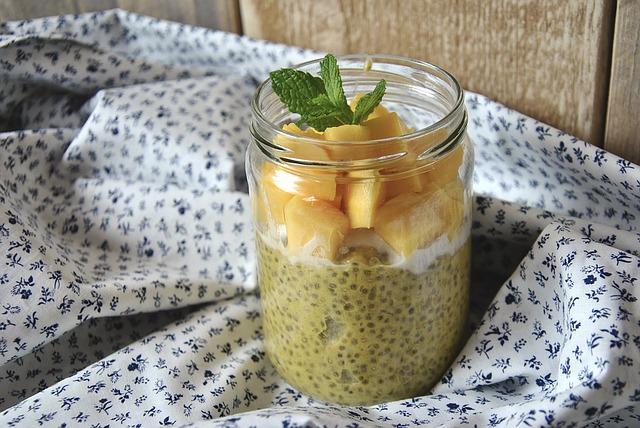Posts Tagged ‘diet’
Are you Leading a Pro-Inflammation Lifestyle?
Inflammation is an individual struggle
As we age, our bodies will face their fair share of degradation and, for many of us, this will include a modicum of painful inflammation; this is a reality of nature. What is not inherent in nature is the choices we are making as a society and on an individual level that actually encourage inflammation when it doesn’t need to be there. Obesity and diabetes are the current epidemics of our age and the kind of diets that contribute to those conditions are the ones that are sure to contribute to inflammation as well.
Take stock of your habits to see if you are living a pro-inflammation lifestyle
Below you will find factors that contribute to inflammation, but only those that are within your control; genetics, autoimmune diseases, virus and injury are not included.
- Smoking
- High-sugar foods: raise the presence of an inflammatory markers called cytokines
- Saturated fats: increase adipose (fat tissue) inflammation and can simultaneously affect chronic or acute inflammation
- Too much stress and too little sleep: raise your level of cortisol, a stress hormone which is linked to inflammation.
- A sedentary lifestyle: When your muscles move, they produce anti-inflammatory substances; if you’re not moving, this isn’t happening for you.
How we help reduce inflammation in Park Slope
Chiropractic targets inflammation at the source: when joints are misaligned, inflammation is never far behind. When a joint remains misaligned, and inflammation is allowed to subside, it can create pain in the affected area. Correcting misaligned joints and reducing inflammatory cytokines are two key ways that chiropractic helps reduce the presence of inflammation. Give our office a call to schedule an appointment and start turning around a pro-inflammatory lifestyle today!
Dr. Karen Thomas, D.C.
Balancing out the Junk!
Define: Junk Food
It’s the kind of food that gets your mouth watering at the very thought. We can all think of our favorite junk food, but what does the term really entail? From McDonald’s to freezer pizza to donuts, junk food is pre-prepared food that has little to no nutritional value. It is usually high in processed ingredients, sugar and bad fats. It is formulated to taste great and treat your brain’s reward complex, make you feel full and give you the baseline of nutrition to stay alive but not much more!
Junk food is not your friend
All that sugar:
- Spikes blood-sugar levels
- Inflames tissues
- Raises blood pressure
- Raises and drops insulin levels
The fat raises levels of undesirable cholesterol and your risk for type 2 diabetes while the sodium causes your body to retain water, making you feel bloated but also contributing to an enlarged heart muscle.
Balancing out the junk food diet
So you’ve gone on a junk food bender and you are looking to recover. Don’t feel bad- with our on-the-go lifestyle, the drive-thru or ready made meal is almost an essential from time to time. However, it is important to not make this your only source of fuel. Below we have come up with ways to balance a junk-food bender.
- Anti-inflammatory ingredients: junk food has a tendency to raise inflammatory markers in the blood, which makes it important to balance this by eating anti-inflammatory ingredients. Adding turmeric to your next stir fry is a great place tos tart.
- Water, water, water! to fight inflammation and nourish the cells of your body.
- High-fiber foods: to balance blood sugar and optimize the function of your gut.
- Healthy starches: rather than the good-for-nothing starches that characterize junk food.
Food is fuel so therefore food should be your friend!
At our office in Park Slope, we are aware of the difficulties inherent in a fast paced lifestyle; we are often at the mercy of the clock which leaves us little room for choice when its time to eat. If eating is a constant challenge, let us help you find the time to eat right and make healthy decisions across the board.
Dr. Karen Thomas, D.C.
Chia Chia Chia
What if 2 tablespoons of some magical ingredient per day could fortify your bones, regulate your nervous system, and combat inflammation in joints? I can tell you that this prospect would make a chiropractor and acupuncturist very excited. Fortunately, this is not a mere pipe dream: the ingredient is sold in most health food stores and goes by the name of chia seeds. These little black seeds, derived from the Chia plant are dietary superstars.
1 ounce equates to roughly 2 tablespoons and this is what you will find:
- 4 grams of (clean) protein
- 11 grams of fiber
- 9 grams of (healthy) fats, half of which comes from omega-3s.
- Varying percentages that contribute to your RDA for: manganese, phosphorous, calcium and magnesium, all of which are important for bone density.
The best part is that they are tasty: you can mix them into just about any meal and barely notice a difference in flavor or texture. Mixing them into hot foods helps to break them down from a dry seed to a mushy consistency so you barely notice they are in the food at all. But your body will notice and you will feel an uptick in functions across the board. For people managing conditions relating to chronic inflammation, the regular administration of omega-3s is essential. They are also chalk full of anti-oxidants which help fight the oxidation of other molecules in the body.
Dr. Karen Thomas, D.C., L.Ac.
Eating to Alleviate Allergies
Brooklyn is alight with airborne allergens. If your airways are inflamed, nose running and raw, you may be looking for any little trick to manage your allergies. Consider the simplest trick of all: nutrition. Augment acupuncture and chiropractic treatment of your allergies by eating the right ingredients to stay above the weather during this beautiful season. High quality, high-power ingredients provide your body with two key ways of fighting allergies: preventing and lowering inflammation, and regulating the immune system.
Here are some great ways to get started:
Vitamin C comes in at the top of the list, for its role in helping antibody production and antihistamine action. Be sure to eat plenty of citrus fruits, bell peppers and leafy greens. Maximize Vitamin C’s effect by consuming the minerals Sulfur and Selenium, by eating nuts, fish and seeds.
Eat fish. Omega-3 fatty acids, found in high concentrations, particularly in salmon and halibut, as well as nut oils, are strong, natural anti-inflammatories.
Consume Calcium and Magnesium, complementary alkaline minerals. Calcium reduces histamine production. When magnesium levels are low, allergies are high.
Cut down on sugar: even little doses can suppress your immune system, an effect that can last for up to 5 hours, leaving you at the mercy of high allergy season.
At Community Chiropractic & Acupuncture, we want to be your first line of defense against allergies. Call our office at (718) 398-3100 to find out how our services and expertise can help you reduce symptoms and your dependence on allergy medication.



